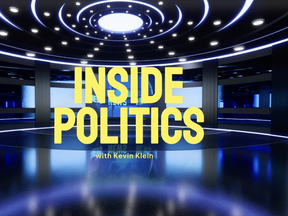Politics
Ottawa’s Role in Canada’s Inflation Crisis and Wab Kinew’s Liquor Trailer

In a recent episode of “Inside Politics,” a panel of columnists addressed the pressing issue of inflation in Canada, placing significant blame on federal policies rather than external factors. Host Kevin Klein and his guests, Lawrence Pinsky and Royce Koop, argued that the current affordability crisis is primarily a result of decisions made in Ottawa, rather than U.S. trade policy or tariffs. The discussion highlighted that approximately 90% of goods traded under the Canada–U.S.–Mexico Agreement (CUSMA) are tariff-free, asserting that domestic policy plays a crucial role in rising costs.
Inflation Tied to Federal Policies
Klein opened the conversation by challenging the narrative that inflation is driven by external forces, emphasizing that federal policies are to blame for soaring prices at the grocery store and the fuel pump. Pinsky echoed this sentiment, stating that the responsibility for inflation “lies entirely with both the fiscal and monetary policy out of Ottawa.” He specifically pointed to significant overspending during the COVID-19 pandemic, ongoing deficit spending, and the mounting debt under former Prime Minister Mark Carney’s administration.
The panelists raised concerns about the upcoming review of CUSMA in 2026, warning that a potential return of Donald Trump to the White House could lead to challenging renegotiations for Canada. Pinsky cautioned that a “weak government in Canada” could face harsh terms if trade discussions take a hostile turn.
Koop focused on the impact of inflation on everyday Canadians, citing data from Abacus that revealed over half of Canadians are now prioritizing basic survival needs—such as food, shelter, and personal safety—over aspirations typical of a developed nation. “We should be doing so much better in this country,” he lamented, adding, “What a shame.”
The Tax Burden and Its Consequences
The conversation shifted to the heavy tax burden faced by Canadians. Klein described the layers of taxation, including municipal fees, carbon taxes, and various levies, stating that they contribute to the financial strain on households. Pinsky referenced a recent study indicating that taxes now take the largest share of Canadians’ income, surpassing both food and housing costs.
In a contrasting segment, the panel discussed Wab Kinew, the Premier of Manitoba, who recently released a light-hearted video promoting a new liquor trailer next to a Costco. Kinew’s message, “Life is good in Manitoba,” was met with skepticism by Klein, who pointed out that the province is grappling with a 3% inflation rate and struggling local businesses. “You didn’t cure cancer,” Klein remarked. “You opened a trailer that sells booze.”
The panelists warned that high taxes, stagnant growth, and political theatrics are driving skilled workers and Canadians to seek opportunities in lower-tax regions, including the United States and even Ecuador. Pinsky emphasized the need for Canadians to demand accountability from their leaders, stating, “We have a lot of termites in Ottawa and in our legislatures. It’s got to stop before it’s too late.”
The discussion on “Inside Politics” underscores the urgency of addressing Canada’s affordability crisis, as panelists call for a reevaluation of federal policies that they argue are exacerbating the economic challenges faced by many Canadians.
-

 Politics3 weeks ago
Politics3 weeks agoSecwepemc First Nation Seeks Aboriginal Title Over Kamloops Area
-

 World4 months ago
World4 months agoScientists Unearth Ancient Antarctic Ice to Unlock Climate Secrets
-

 Entertainment5 months ago
Entertainment5 months agoTrump and McCormick to Announce $70 Billion Energy Investments
-

 Lifestyle4 months ago
Lifestyle4 months agoTransLink Launches Food Truck Program to Boost Revenue in Vancouver
-

 Science5 months ago
Science5 months agoFour Astronauts Return to Earth After International Space Station Mission
-

 Technology3 months ago
Technology3 months agoApple Notes Enhances Functionality with Markdown Support in macOS 26
-

 Top Stories2 months ago
Top Stories2 months agoUrgent Update: Fatal Crash on Highway 99 Claims Life of Pitt Meadows Man
-

 Lifestyle3 months ago
Lifestyle3 months agoManitoba’s Burger Champion Shines Again Amid Dining Innovations
-

 Politics4 months ago
Politics4 months agoUkrainian Tennis Star Elina Svitolina Faces Death Threats Online
-

 Sports5 months ago
Sports5 months agoSearch Underway for Missing Hunter Amid Hokkaido Bear Emergency
-

 Politics4 months ago
Politics4 months agoCarney Engages First Nations Leaders at Development Law Summit
-

 Technology5 months ago
Technology5 months agoFrosthaven Launches Early Access on July 31, 2025




















